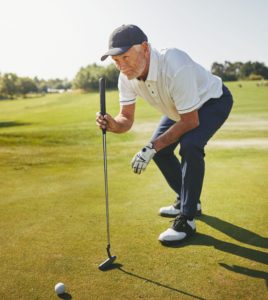
The weather is finally improving and Michigan residents are getting out and enjoying sunshine and fresh air again! After a long winter, the warmth feels good to body and soul.
However, with warmer weather, we can no longer conceal those extra pounds under coats and sweaters. Thus, the realities of winter weight gain becomes all too obvious as summer months creep closer. The holiday season’s indulgences, winter comfort food, and being less active indoors can easily result in a few extra pounds. However, some adults struggle more than others with weight gain and the ability to lose. And, many are against odds that are extremely challenging.
Poor sleep quality has risen to light as a contributing factor in more than just getting fat, it has been linked to obesity. This does not occur from a restless night here or there. Insufficient sleep – night after night – affects the brain’s ability to control your eating.
Certainly, after a night of too-little sleep, people have less energy and crave naps to make up for it. Yet, that’s not all they’re craving. Insufficient sleep causes a reaction in the brain that revs up certain food cravings. These cravings are typically the foods that provide quick energy to perk us up — simple carbs.
In addition to triggering the urge for quick forms of energy, a sleep-deprived brain compromises two hormones that regulate hunger and satiety (the feeling of fullness).
Research has shown that the brain is actually very active while the rest of the body is asleep. During this ‘down time,’ the brain – the body’s central control center – is ridding toxins and resetting hormonal levels. Without sufficient oxygen levels during this time, the brain is less efficient at these nightly housekeeping tasks. The result?
During the day, your brain tells you to seek out quick energy through sugar and carbohydrate cravings to overcome sluggishness. Then, it tells you that you’re hungry more often. So you eat. Then, it tells you that you are less full than you should actually feel. Add to all this feeling like you’d rather crawl into bed to nap than onto a treadmill. The culmination is weight gain, to no surprise.
Sleep disorders, such as heavy snoring and sleep apnea, cause the brain (and heart) to operate at less efficiency. The brain is simply not receiving sufficient oxygen for it to function as it should. When the pattern of sluggishness, cravings and hunger become part of your life, weight gain is a natural result.
Trying to shed weight when the brain is actually working against you seems to be a losing battle, and the loss is not in the form of pounds. People who keep gaining, gaining, gaining become very disheartened for their lack of willpower when the true culprit may be their lack of sleep quality.
According to information offered by the American Academy of Sleep Medicine, it is “estimated that 26 percent of adults between the ages of 30 and 70 years have sleep apnea.”
(https://aasm.org/rising-prevalence-of-sleep-apnea-in-u-s-threatens-public-health/)
In addition to weight gain and obesity, sleep apnea has been associated with serious health problems that include heart attack, stroke, high blood pressure, diabetes, Alzheimer’s disease, depression, migraines and impotency. While heavy snoring is often a precursor to sleep apnea, about a fourth of sleep apnea sufferers are silent during sleep.
In the past, treatment for sleep apnea has often been a CPAP device that is worn during sleep. These consist of a mask worn over the face, a hose attached to a fan, and a fan that blows air through the hose, forcing oxygen into airway passages. Although effective in its task, an overwhelming percentage of those who are prescribed CPAP devices simply can’t get comfortable with them or find them noisy, confining, embarrassing and inconvenient. This often leads to poor compliance. It is estimated that about 22 percent of those who have been prescribed CPAP therapy do not wear their devices on a consistent rate.
For those with mild to moderate levels of sleep apnea, we offer a small, custom-designed oral appliance that eliminates the need for CPAP. These mouth pieces are FDA approved and comfortably designed so they don’t interfere with sleep. They are easy to use and effective for many levels of sleep apnea and heavy snoring.
However, it’s not just in the device itself that is a proper solution for sleep disorders. True success occurs through the proper device for the unique structures of each individual, proper fit, and monitoring for a successful outcome. Merely placing an oral appliance that is comfortable is but one step in the process. For yours to provide optimal results, an individualized process is required. This includes a unique understanding of the airway passages (through advance training), a complete view of airway interferences (through our Cone Beam imaging), and conforming your device to specific needs (commitment to each patient’s success). To achieve true success, this requires anything but a one-size-fits-all approach.
Let us help you restore your quality of sleep so you can get back to being YOU! Better sleep will help you achieve your fitness goals and feel better about your overall health. This summer, plan to sleep better and get out there and enjoy yourself!
Begin by calling our Shelby Township dental office 586-739-2155 to request a no-charge, private session.